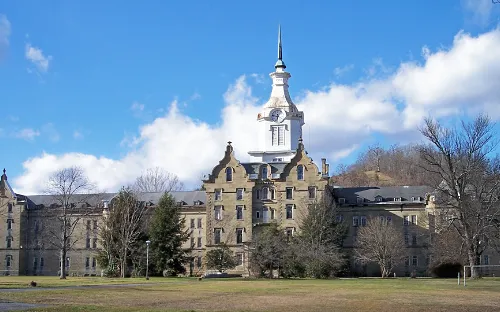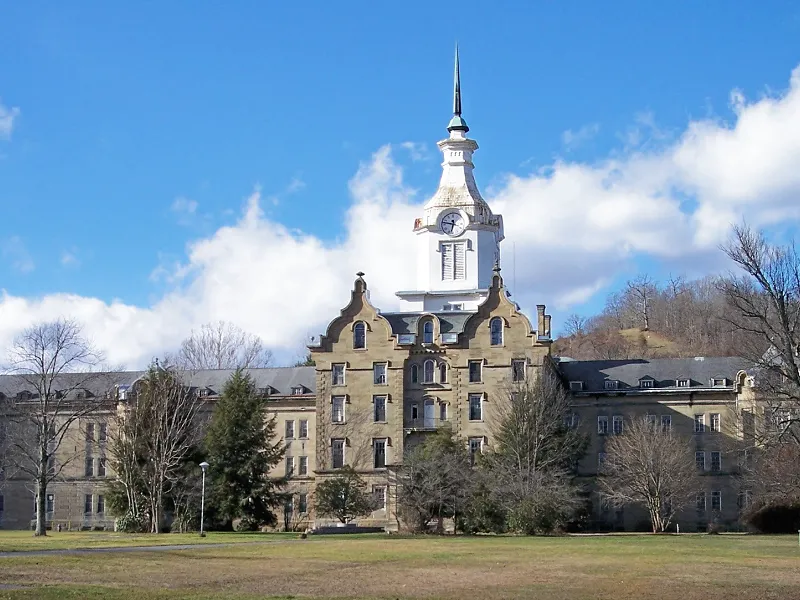Trans-allegheny Lunatic Asylum and its collection
The Trans-Allegheny Lunatic Asylum, which was later renamed the Weston State Hospital, served as a psychiatric hospital from 1864 to 1994 in the city of Weston, West Virginia. After its closure, it was reopened as a tourist attraction, reverting to its original name. The hospital's rich history and architectural significance make it a fascinating destination for visitors interested in history, architecture, and mental health.
Museum and Exhibits
The main building of the Trans-Allegheny Lunatic Asylum, known as the Kirkbride, houses a museum on the first floor. The museum showcases paintings, poems, and drawings created by patients during art therapy programs. There is also a room dedicated to the various medical treatments and restraints used in the past, with artifacts like a straitjacket and a hydrotherapy tub on display. This offers visitors a unique insight into the history of mental health treatment.
Tours and Paranormal Activities
The Trans-Allegheny Lunatic Asylum offers guided historic and paranormal daytime tours, as well as evening ghost hunts and paranormal tours. The shorter historical tour allows visitors to explore the first floor of the Kirkbride, while the longer tour provides access to all four floors, staff apartments, the morgue, and the operating room. These tours offer a comprehensive view of the asylum's history and alleged paranormal activity.
History & Anthropology Specialized & Alternative Historic house Person & Artist






